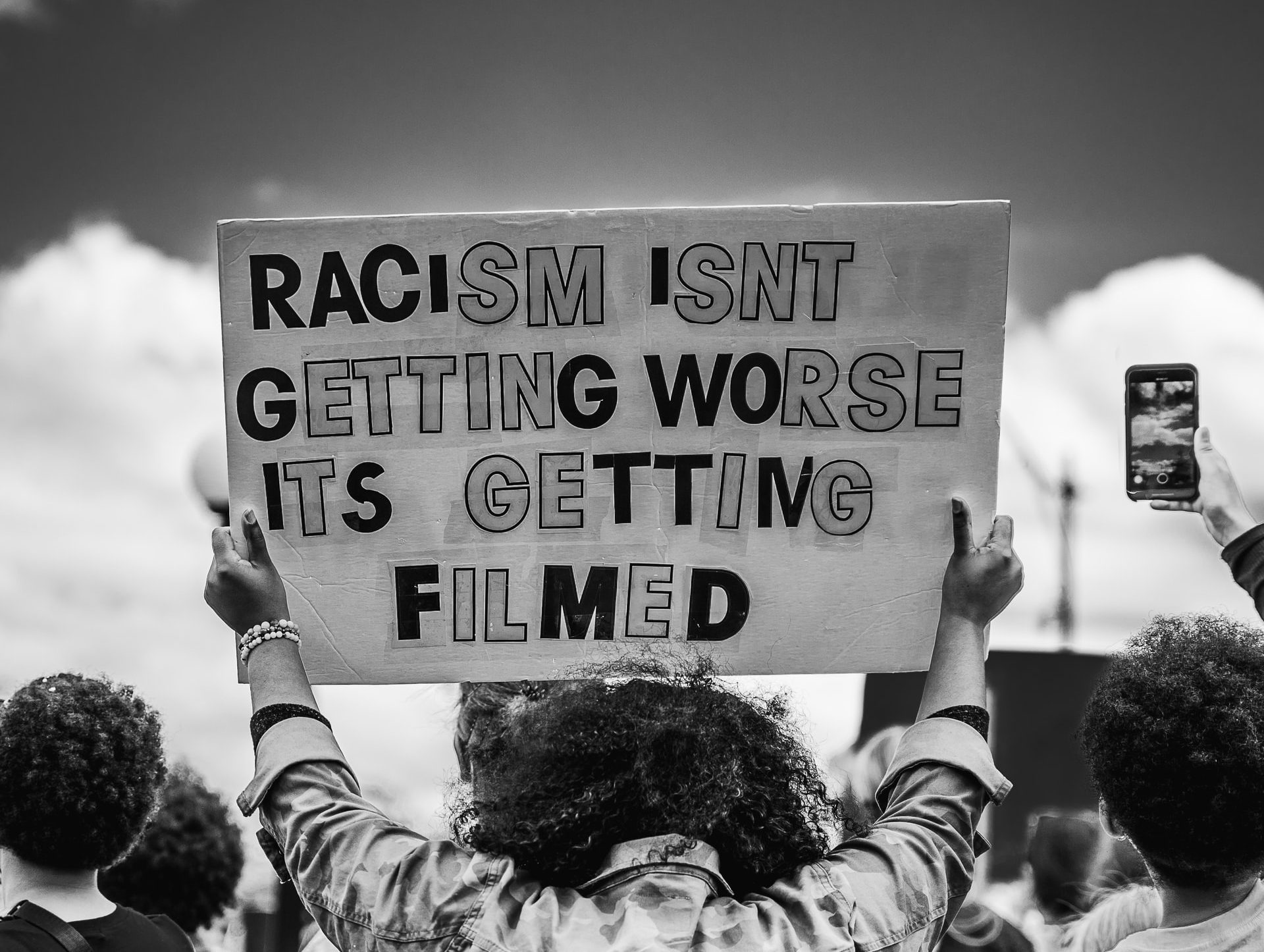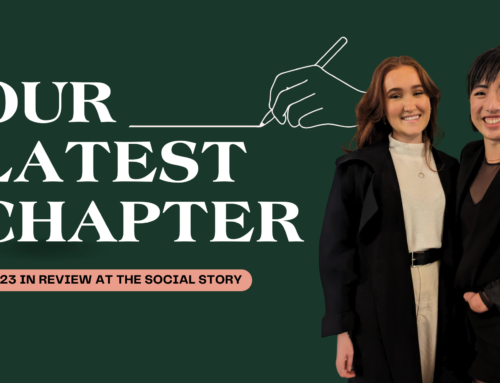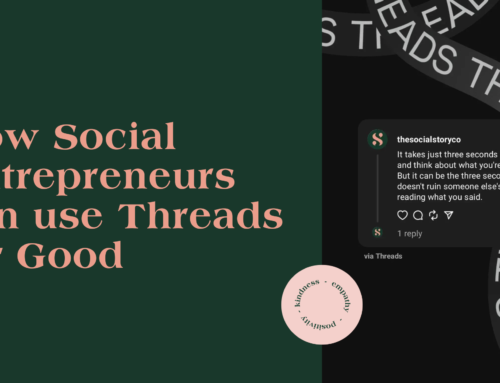Key Takeaways:
– We have been reminded of the power we do have with social media to unite under a cause and feel the weight of worldwide support for an issue.
– Social media is a great first step into activism but it is not the final one. We all have to do more to create noise and affect change for the issues that matter to us.
– Just a reminder: #BlackLivesMatter and we still need to demand justice and change in America and beyond. This cannot go on for much longer.
I first came to the world of social media through activism and advocacy. While studying a degree in communications at uni, I volunteered for World Vision’s youth movement, VGen. Our mission was to advocate for poverty alleviation, connecting local youth with the mission and demanding our leaders to increase their commitment to foreign aid. Our lack of budget and our young age seemed to befit a social media focus. But that’s where I first started to play.
Social media was a fantastic tool to reach new audiences and connect with others in the space. My proudest moment was when Bill Gates visited Australia and was interviewed for a special episode of Q&A. They covered topics from his work to eradicate polio to global warming to even the future of condoms. But our organisation along with a number of Australia’s key non-profits and advocacy organisations were keen to shift the conversation to focus on foreign aid and poverty. And while furiously live-tweeting the episode, our tweet from the VGen Australia page blinked up onto the screen – the only time that night that poverty was featured. I think I screamed.
This may have seemed like a tiny win and the efficacy of actually getting more foreign aid highly questionable from one single tweet. But if anything from the subsequent six years I’ve spent working in social media professionally have taught me is that I’m still wildly optimistic about what social media can achieve.
In the past ten years, we’ve seen the nature of social media completely shift our world. It’s challenged traditional media structures – bringing ruin to long-standing institutions of print media. It has created new languages in which we communicate with emojis or subtweets. It’s sparked seismic shifts in the way we talk about sexual assault, Wall St and of course, race.
When no other avenues were available, the role that social media can plan in creating change was all the more evident.
The racial revolution not only created a moment in time for us all to act, but to act in ways that united us globally while many of us were still staying at home. We relied on social media more than ever to create conversations of change and were forced to reckon with the best ways to do so.
And it’s a discourse that has also worked to highlight the pitfalls of social media. The issue doesn’t just go away when it stops trending or when we stop posting about it. It’s not enough to be performative and show off our actions. And whenever we learn about tragedy or a time of need, we need to take action. These are lessons about the realities of social media in political and social discourse that we should be taking past this moment and past this movement.
1. What does my post do?
With every post and every comment, we have more influence than we think. We often think that with only 100 followers, the big things should be left to the bigger accounts and the leaders to carry the message. But the strength of movements like #MeToo and #BlackLivesMatter always came from their mass support. The sheer mass of content that comes from having 1m+ people all sharing their own story is a signal boost few people can ignore. But more importantly, whether you have 100 followers or 100k, if even one person sees and is positively impacted by your post, that is still something.
As Reni Eddo-Lodge wrote in Why I’m No Longer Talking to White People About Race, “If you are disgusted by what you see, and if you feel the fire coursing through your veins, then it’s up to you. You don’t have to be the leader of a global movement or a household name. It can be as small scale as chipping away at the warped power relations in your workplace. It can be passing on knowledge and skills to those who wouldn’t access them otherwise. It can be creative. It can be informal. It can be your job. It doesn’t matter what it is, as long as you’re doing something.”
We all have a choice to make with every post we make. Its your prerogative to use it how you will with however many selfies or posts of your dog you want to do. But when you share a BLM post or something you want to talk about, it can still make a difference to someone. The thing to remember is that the people likely to see it are probably your closest circle. With how the algorithms work, your best friends, the people you interact with most often and vice versa will be the ones who will most likely see your post. So are you preaching to the converted? Are you instead masking the information that needs to come through like with what happened when the black squares were being posted in the name of Black Lives Matter?
While we shouldn’t diminish the fact that our voice can make a difference, we also need to be realistic about how it plays out in the wider conversation. So go back to your why. Are you posting this just to show your friends that you too are part of the movement and you feel compelled to say something, just anything because everyone else is? Well then, don’t. You don’t love your dad any less if you don’t post about him on father’s day; nor are any less of an ally if you don’t share every post. But if you do have a chance to use your real estate to share something meaningful, don’t underestimate the power it could still yield.
2. How can I post better?
So what indeed is meaningful and helpful? Well, it should come as no surprise that a business called ‘The Social Story’ would promote the importance of storytelling. Rape and sexual harassment were not new concepts but the power of individuals sharing their own stories about their experiences with it made it hard to ignore. For any woman who shared their story, they had conversations with their friends (mainly men) who were in disbelief that this could happen to their own friend, mother and sister. So storytelling can dismantle a lot of the disassociation we have with these big issues that we think are irrelevant to us.
But this moment is asking for something more. Not just an admission of our ignorance of these issues, but a recognition that it is through privilege that we are not aware of these issues. And more so, it’s a call to action to not let it to keep flying under the radar. And the brilliant thing is that we’ve got the framework in which we can post better in the name of dismantling this longstanding privilege.
1. Amplify the voices that are not often heard. It should not lie on Black people to create change in a system that is rigged against them; but we should also listen to them about how to change it. We do not know their experiences and to try and create new systems aimed at ‘helping them’ but not having them lead the conversations is just idiotic. If you don’t know how to talk about these issues, it’s a sign you need to be diversifying your feeds and your networks to connect with people who do and listen to them.
2. Act with compassion. We are all weary and worn out from a bloody crazy 2020 – let alone the added trauma of Black people who have to once again face the fear and injustice they face every single day. While the momentum that has been built by finally having a global support network in these protests, this is their existence. They are allowed to take a break, they shouldn’t have to teach you everything. And they do not have to see the trauma.
If you’re sharing videos of shootings, either don’t or share it with a trigger warning. If you’re sharing images from a protest, be mindful to hide the faces of other attendees as they could get into legal trouble. If you see a dissenting opinion, take a breathe and don’t act out of haste and rage but see if we can turn these into conversations, not arguments.
3. Do your research. It is undeniable that the internet is rife with misinformation. So before you share, check the credibility of the sources and actually read the post. The share button makes it all too easy to find one thing we agree with and click that easy airplane. But we need to do our due diligence to either provide context for what we’re sharing or at the very least, knowing what exactly we are sharing.
Let’s take the #ChallengeAccepted trend we saw in early August for example. You start to see a bunch of women sharing black and white selfies with vague captions about how they’ve been nominated by their girlfriends and they’re feeling empowered. It sounds like a great idea – let’s lift each other as women. Maybe you’ve been tagged a few times as well. But what is the challenge really? Is it just to see ourselves in grayscale? Is it to post an unfiltered selfie? Well, if you actually looked it up, the hashtag was started by activists in Turkey to raise awareness of the femicide that was occurring in the country much too often. Eventually, the conversation did shift as people who continued to post their accepted challenges also threw a bone towards Turkey and the situation happening there. But we should all be doing our part to first look it up before blindly feeding into a trend.
4. Do not take things personally but as an opportunity to learn. Look, sometimes that backlash was able to create some positive results like in the case of #ChallengeAccepted. But in the same vein that we need to be compassionate, we also need to use compassion to accept criticism. Callouts on our privilege or on things we might be getting wrong in our language or actions are not meant as attacks on who we are. We get it, these are strange and nuanced conversations – and for many, can be quite new. We have to normalise the idea that we are going to get things wrong but this by no means should deter us from trying or from learning from our mistakes. And again, be gentle with Black people who may not have a homogenous idea of it.
Speaking as a woman of Chinese descent, I know my relationship with my heritage has been complicated. Where do you draw the line, you might ask. I don’t know. I’m still trying to figure it out. And growing up in Australia, I have a mixed bag of Australian and Chinese identities that do not make me the same as my counterparts and particularly, not with all Asians! But when I say that I’m offended, believe me. It’s not your job to tell me not to be offended but instead to open up the conversation to why that might be.
3. What do I do next?
You may have noticed that posts over the past couple months have changed. Whether it’s about the Beirut explosion or climate change, there’s a few more follow up posts that come about. It’s not enough to just get awareness, but to ask ourselves the next question of what we can do? And it is quite simple – share, donate, sign petitions, join a protest if you feel comfortable, call your representatives and VOTE. @impact does a great job to embody this. While they also share viral images or relevant info, it is the other images in the carousel (one pictured below) that remind us to not just leave the like but to take action.
That is the very question you should continue to ask: what’s next? A like, a share, yes, has impact. But change is created by going beyond our screens and doing more. It’s as simple as doing a quick Google of the issues you care about. While these informative posts are incredibly helpful, there’s only so much information you can fit on 10 screens of an Instagram carousel. Diving further into the issues and ways to help beyond the screen is where we’re able to keep up the momentum, long after the hashtags stop trending.
4. How do I keep this up?
It’s easy to jump on the bandwagon when everyone is in it together. When we cannot ignore the BLM posts all over our feed, we are easily reminded of our need to take action. But what happens when that goes away? This particular moment in time feels like that critical point from which we can turn back from. George Floyd’s name or Breonna Taylor’s doesn’t just fade into a distant memory until the next one comes along to reignite the rage. But we can make active steps to ensure that we don’t just return to a normal that reverses a lot of the progress that was made at this time – for race and any other issues that you are passionate about.
1. Diversify your feed. You should be concerned if your post is completely filled with influencer #spon posts now. We should all be doing better to ensure that the content that we are consuming is reflective of the world around us. But make it work for you. If you’re interested in travel, take a look at the @blacktravelalliance and follow more Black and travel influencers of colour so you are exposed to their stories that may challenge your understanding and worldview.
Similarly, if it’s beauty or fashion or climate change or gender equality – whatever it is that you want to learn about, ensure you are considering the intersectionality of the issue. How does race or gender or sustainability play into the issue and what sort of accounts can help you understand this point of view? And if it’s hard to find, make that public. Why don’t we see more Black faces in beauty campaigns? Ask your favourite brands about what they’re doing to change that.
2. Take the moment to reflect on yourself and your privilege. We all have to face up to how entrenched these systems are and while it’s easy to post a black square, recognising the changes we need to do beyond that to ensure it is not just performative is where the hard work is. So challenge yourself to be truthfully introspective. Question your own privilege (Layla F. Saad’s ‘Me and White Supremacy’ is a particularly great guide), audit how sustainable your lifestyle is. This all starts with us.
3. Connect with relevant communities and organisations. While it might start with us, we don’t have to do this alone. The best way to move forward is to be having these conversations and find a supportive community that can help you move forward and find active ways to get involved. In the same way as finding way to diversify your feeds, find the niche communities you can be a part of that will help you discuss the issues that matter to you. There really is a Facebook group for anything.
4. Run the marathon, not the sprint. Change doesn’t happen overnight and this sort of systemic revolution will take a lot of work. It’s ok to take it one step at a time and take a rest, as long as we never take our foot completely off the pedal. Many people are not able to ignore the way they experience racism or sexism, and the climate crisis reminds us constantly how we are running out of time. But we also must ensure that we can keep this momentum up – even if it means taking a bit of a rest. This is hard and constant work but it will also be the most rewarding work.






[…] the pain and anger the racial protests stemmed from, we were inspired by the momentum this was able to build. We’re a company led by a Asian Australian female and […]